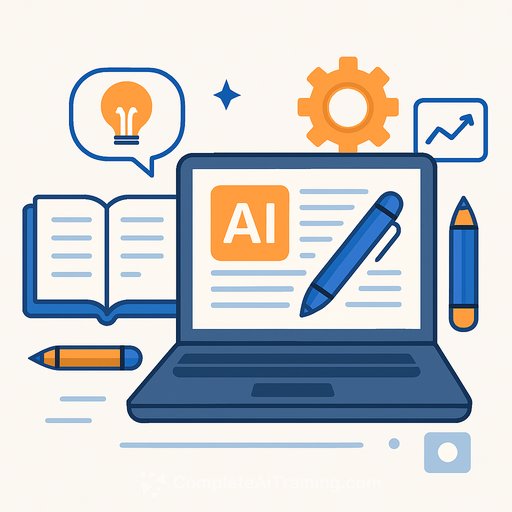Who Benefits from Africa’s Stories? The Fight for Fair Compensation in the AI Era
As tech giants like Google and OpenAI expand licensing deals to access news content for training large language models (LLMs), Africa remains noticeably absent from these negotiations. While media organizations worldwide secure payments for their content, African publishers largely watch from the sidelines—a situation with serious consequences.
Last year, major outlets such as The New York Times filed lawsuits against AI companies for using their content without permission. Others like The Intercept and Raw Story have taken similar legal action. At the same time, some media organizations choose to cooperate. For example, The Associated Press granted OpenAI access to its archives in exchange for AI tools, and Shutterstock monetized its visual content while gaining access to generative technology.
More recently, European publishers like Axel Springer, Le Monde, and the Financial Times have secured high-profile licensing agreements with AI companies, with reported payments ranging from $1 million to $5 million annually. These sums, while modest compared to AI companies’ resources, pose a barrier for smaller competitors and further entrench dominant players.
Legal Battles and Author Demands
The core legal question is whether scraping copyrighted content from the web for AI training counts as fair use or copyright infringement. OpenAI argues its use is fair, continuing to use contested content until courts decide otherwise.
Beyond institutions, thousands of individual authors demand recognition and compensation. Over 8,000 writers, including prominent names like Margaret Atwood and Dan Brown, have petitioned AI companies for consent, credit, and payment. They emphasize that AI systems rely heavily on their copyrighted work and deserve fair compensation.
OpenAI’s CEO has acknowledged these concerns and expressed interest in creating models to compensate authors when their styles or content are used.
Africa’s Position in the AI Content Economy
Publisher groups in countries such as Indonesia, the US, UK, and South Africa have made some moves to negotiate with Big Tech, but African media largely remain excluded. In South Africa, the South African National Editors Forum (SANEF) advocates for inclusion of smaller publishers in licensing deals, yet questions linger about management and sustainable revenue models.
By contrast, Taiwan secured a $9.8 million commitment from Google to support its media digitization despite lacking formal legislation. This disparity raises a critical question: why are African media houses struggling to gain fair compensation while others negotiate substantial payments?
Challenges African Publishers Face
African media outlets face multiple hurdles. These include limited technical capacity, lack of strategic alliances, inconsistent content quality, poor monetization knowledge, and the ongoing decline of traditional revenue streams since the 2010s.
As Victor Asemota points out, Africa often owns or hosts very little of its tech infrastructure. Poor internet connectivity and outdated content management systems prevent African publishers from integrating effectively with the algorithms and data ecosystems that platforms like Google use to monetize content.
Meanwhile, global publishers rake in millions annually from licensing deals—payouts range between $1 million and $16 million per year. African publishers, aside from some efforts in South Africa, have not been publicly listed in any licensing agreements with AI or tech giants.
This exclusion is alarming. African content is likely being scraped and repurposed by AI without attribution or payment. AI tools often summarize African journalism without redirecting traffic back to the original sources, cutting into search engine referrals—a vital revenue source for many African publishers. Some report over 50% drops in search traffic since the launch of AI-powered summaries.
The Legal and Structural Gap
Unlike Europe and Australia, most African countries lack copyright and neighboring rights laws to compel AI companies to negotiate licensing deals. The European Union’s Digital Markets Act and Australia’s News Media Bargaining Code provide legal frameworks missing in Africa.
This absence means African media miss out on revenue opportunities and the chance to influence how AI systems represent African narratives. The AI licensing market is projected to reach $67.5 billion by 2030—a substantial opportunity for those included.
Path Forward for African Publishers
- Form Regional Alliances: African publishers should create collective bargaining groups similar to Europe’s ENPA or Australia’s News Media Bargaining Code to negotiate with Big Tech effectively.
- Advocate for Legal Frameworks: Regional bodies like the African Union should prioritize modern copyright laws, including neighboring rights, to provide legal grounds for compensation.
- Invest in Digital Infrastructure: Improving internet access, updating content management systems, and adopting technologies like content fingerprinting and structured metadata will help African publishers protect and monetize their content.
- Engage Proactively with AI Developers: Content owners should initiate discussions with AI companies, propose licensing deals, and participate in pilot projects that include African content.
Without coordinated strategies, African media risk remaining excluded from the evolving global information economy shaped by AI. Fragmentation weakens their negotiating power, widening the gap between local media and global tech powerhouses.
Why It Matters
The issue goes beyond money. It’s about cultural relevance, narrative control, and the survival of African journalism. Fair compensation models—whether licensing fees, revenue sharing, or access to AI tools—must finance the future of media on the continent, not just pay for past content.
For writers and media professionals, understanding these dynamics is crucial. The way AI uses content today will shape whose stories get told tomorrow. African voices deserve a seat at the table to ensure those stories are respected and rewarded.
Explore more on how AI impacts content creation and monetization at Complete AI Training.
Your membership also unlocks:






